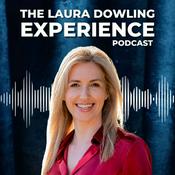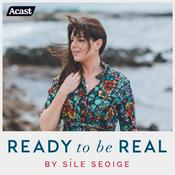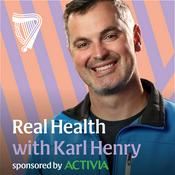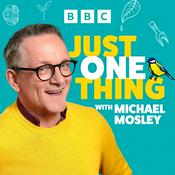Stronger After Stroke

38 episodes

Regaining Control: Pelvic Floor Therapy for Incontinence After Stroke
08/12/2025 | 21 mins.
Regaining Control: Pelvic Floor Therapy for Incontinence After Stroke Incontinence after stroke is common — but highly treatable. In this episode, Lisa Cecil, P.T., DPT, pelvic floor therapist, discusses why bladder and bowel changes happen after stroke and how pelvic floor therapy can help restore control, comfort and confidence. This podcast covers: How stroke impacts bladder and bowel function What pelvic floor therapy looks like for stroke survivors Techniques that improve urgency, leakage and incomplete emptying How therapy boosts independence and quality of life Practical exercises and habits you can safely start at home Tune in for empowering, stigma-free guidance to help survivors and caregivers navigate one of the most overlooked parts of stroke recovery. Want more inspiring stories and real-life resources? Subscribe and share "Stronger After Stroke" with someone who needs a little extra support navigating life after stroke. For more support, view our programs available online and in person through Norton Neuroscience Institute Resource Centers: https://nortonhealthcare.com/services-and-conditions/neurosciences/patient-resources/resource-center/ If you enjoyed this podcast, listen to Norton Healthcare's "MedChat" podcast, available in your favorite podcast app. "MedChat" provides continuing medical education on the go and is targeted toward physicians and clinicians. Norton Healthcare, a not-for-profit health care system, is a leader in serving adult and pediatric patients throughout Greater Louisville, Southern Indiana, the commonwealth of Kentucky and beyond. A strong research program provides access to clinical trials in a multitude of areas. More information about Norton Healthcare is available at NortonHealthcare.com. Date of original release: Dec. 8, 2025

Women and Stroke: Recovery, Prevention and Health Equity
10/11/2025 | 29 mins.
Women and Stroke: Recovery, Prevention and Health Equity In this episode of "Stronger After Stroke," host Rosa Hart, BSN, R.N., SCRN, talks with Tamika Burrus, M.D., a stroke neurology specialist, about how stroke uniquely affects women. Together, they explore critical differences in how women respond to stroke treatments, such as thrombolytics (alteplase and tenecteplase) and mechanical thrombectomy, why recovery can look different for women, and what steps health care systems can take to close the gender gap in stroke outcomes. Dr. Burrus shares insights on physical, cognitive and emotional recovery challenges that women often face after stroke. The conversation also highlights disparities in stroke rehabilitation access, follow-up care and stroke prevention — particularly among Black and Hispanic women, who face a higher risk. Listeners will gain practical takeaways on how women can reduce their stroke risk through lifestyle changes, the importance of early screening by primary care and OB/GYN providers, and how health care professionals can improve outcomes through education, advocacy and equitable care. In this episode, you will learn: How estrogen impacts the cardiovascular system The unique physical, cognitive and emotional recovery challenges women face after stroke Disparities in access to rehabilitation and follow-up care for women compared with men Lifestyle changes that can significantly reduce stroke risk for women at any age How racial and ethnic disparities affect stroke risk among Black and Hispanic women The role of primary care and OB/GYN providers in early stroke risk screening Common misconceptions about stroke in women The most important next steps for women recovering from stroke How nurses and health care professionals can improve stroke outcomes and equity Key takeaway:Women experience stroke differently — biologically, socially and systemically. Improving prevention, early detection and equitable access to care can help save lives and support stronger recoveries. About our guest:Tamika M. Burrus, M.D., is a stroke neurologist with Norton Neuroscience Institute. Dr. Burrus earned her medical degree from the University of Iowa in Iowa City. She completed her residency in neurology at the Mayo Clinic in Rochester, Minnesota, and a fellowship in vascular neurology at the University of California, San Francisco. She is a fellow of the American Academy of Neurology and co-author on several national guidelines for the American Academy of Neurology and the American Heart Association. Dr. Burrus believes it is important to ensure that patients feel as if their interaction is a partnership. She strives to help her patients understand their brain and spine and to collaborate with her regarding the best treatment plan for them. She has specialized expertise in telemedicine and was one of the early adopters in the field of teleneurology. Dr. Burrus is a Louisville native. In her spare time, she enjoys traveling and has visited 44 U.S. states and numerous countries outside North America. Dr. Burrus also likes cooking, art and philanthropic endeavors. Want more inspiring stories and real-life resources? Subscribe and share "Stronger After Stroke" with someone who needs a little extra support navigating life after stroke. For more support after stroke, check out the programs available online and in person through Norton Neuroscience Institute Resource Centers: https://nortonhealthcare.com/services-and-conditions/neurosciences/patient-resources/resource-center/ If you enjoyed this podcast, listen to Norton Healthcare's "MedChat" podcast, available in your favorite podcast app. "MedChat" provides continuing medical education on the go and is targeted toward physicians and clinicians. Norton Healthcare, a not-for-profit health care system, is a leader in serving adult and pediatric patients throughout Greater Louisville, Southern Indiana, the commonwealth of Kentucky and beyond. A strong research program provides access to clinical trials in a multitude of areas. More information about Norton Healthcare is available at NortonHealthcare.com. Date of original release: Nov. 10, 2025

Part 1 of 2: What Every Woman Needs to Know About Stroke
13/10/2025 | 17 mins.
Episode 35. Part 1 of 2: What Every Woman Needs to Know About Stroke Stroke doesn't impact men and women in the same way. Understanding the difference matters in terms of risks, symptoms and prevention strategies In Part 1 of this two-part series, Rabia G. Buridi, M.D., a vascular neurologist with Norton Neuroscience Institute, talks with host Rosa Hart, BSN, R.N., SCRN, to break down what women need to know about stroke and empower them to act quickly when stroke strikes. In this episode, you will also learn: Why stroke risk isn't the same for men and women. How life events, such as pregnancy or migraines, can impact long-term brain health. What "atypical" stroke symptoms look like in women — and why recognizing them early can save lives. Leading causes of stroke in women and how they are different from the causes for men. Stroke presentation and diagnosis in women, including atypical symptoms that are often missed and tips for recognizing stroke early. About Dr. Buridi: Dr. Buridi earned her medical degree from Trinity College Dublin in Ireland, completed her neurology residency at Dartmouth Hitchcock Medical Center, Concord, New Hampshire, and completed a vascular neurology fellowship at Rush University Medical Center, Chicago, Illinois. Her philosophy centers on education, treatment and prevention — helping patients not just survive but thrive. Born and raised in Louisville, Dr. Buridi balances her career with family life and a love for experimenting with new recipes in the kitchen. Want more inspiring stories and real-life resources? Subscribe and share "Stronger After Stroke" with someone who needs a little extra support navigating life after stroke. For more support after stroke, check out the programs available both virtually and in person through Norton Neuroscience Institute Resource Centers: https://nortonhealthcare.com/services-and-conditions/neurosciences/patient-resources/resource-center/. If you enjoyed this podcast, listen to Norton Healthcare's "MedChat" podcast, available in your favorite podcast app. "MedChat" provides continuing medical education on the go and is targeted toward physicians and clinicians. Norton Healthcare, a not-for-profit health care system, is a leader in serving adult and pediatric patients throughout Greater Louisville, Southern Indiana, the commonwealth of Kentucky and beyond. A strong research program provides access to clinical trials in a multitude of areas. More information about Norton Healthcare is available at NortonHealthcare.com. Date of original release: Oct. 13, 2025

The Overlooked Key to Stroke Recovery: Hearing
08/9/2025 | 32 mins.
Episode 34. The Overlooked Key to Stroke Recovery: Hearing Hearing is one of the keys to independence after a stroke. More than just sound, hearing is critical for brain health, rehabilitation and independence following a stroke. In this episode of "Stronger After Stroke," host Rosa Hart, BSN, R.N., SCRN, talks with Virginia Dekanski, Au.D., CCC-A, about how untreated hearing changes can impact recovery and long-term cognitive health. In this episode, you will learn: Why hearing loss can slow rehabilitation after a stroke. How balance problems are connected to hearing and the inner ear. The link between untreated hearing loss and increased dementia risk. What vestibular testing reveals about hidden dizziness or the risk of falling. How hearing support can protect cognition and improve quality of life. About our guest: Viriginia Dekanski earned her audiology doctorate from Syracuse University and her bachelor of arts degree. in cognitive psychology from the University of Virginia. Licensed in Kentucky, she holds a Certificate of Clinical Competency in Audiology from the American Speech-Language-Hearing Association. She specializes in vestibular testing and adult diagnostics. Want more inspiring stories and real-life resources? Subscribe and share "Stronger After Stroke" with someone who needs a little extra support navigating life after stroke. For more support after stroke, check out the programs available online and in person through Norton Neuroscience Institute Resource Centers: https://nortonhealthcare.com/services-and-conditions/neurosciences/patient-resources/resource-center/ If you enjoyed this podcast, listen to Norton Healthcare's "MedChat" podcast, available in your favorite podcast app. "MedChat" provides continuing medical education on the go and is targeted toward physicians and clinicians. Norton Healthcare, a not-for-profit health care system, is a leader in serving adult and pediatric patients throughout Greater Louisville, Southern Indiana, the commonwealth of Kentucky and beyond. A strong research program provides access to clinical trials in a multitude of areas. More information about Norton Healthcare is available at NortonHealthcare.com. Date of original release: Sept. 8, 2025

Love, Resilience and Recovery: A Young Caregiver's Story
11/8/2025 | 53 mins.
Episode 33: Stronger After Stroke — Love, Resilience and Recovery: A Young Caregiver's Story In this heartfelt episode of "Stronger After Stroke," host Rosa Hart welcomes Katelyn Deakins, wife of a young stroke survivor who shares her inspiring story of love and resilience amid the realities of caregiving. Katelyn shares what it was like to step almost overnight into the role of caregiver, navigating the medical system and supporting her husband's recovery while also learning to care for herself . In this episode, Katelyn discusses: The emotional rollercoaster of her husband's stroke and recovery How sudden life changes altered their relationship Practical strategies for avoiding burnout that helped her successfully juggle taking care of her husband and children The importance of finding a community of support Honest advice for young caregivers feeling isolated or overwhelmed The lessons she learned about resilience and hope and her expectations for the future Whether you are a caregiver , a stroke survivor or a health care professional, Katelyn's story offers insights into the hidden struggles — and unexpected strengths — of life after stroke. Want more inspiring stories and real-life resources? Subscribe and share "Stronger After Stroke" with someone who needs a little extra support navigating life after stroke. For more support after stroke, check out the programs available online and in person through Norton Neuroscience Institute Resource Centers: https://nortonhealthcare.com/services-and-conditions/neurosciences/patient-resources/resource-center/ If you enjoyed this podcast, listen to Norton Healthcare's "MedChat" podcast, available in your favorite podcast app. "MedChat" provides continuing medical education on the go and is targeted toward physicians and clinicians. Norton Healthcare, a not-for-profit health care system, is a leader in serving adult and pediatric patients throughout Greater Louisville, Southern Indiana, the commonwealth of Kentucky and beyond. A strong research program provides access to clinical trials in a multitude of areas. More information about Norton Healthcare is available at NortonHealthcare.com. Date of original release: Aug. 11, 2025
More Health & Wellness podcasts
Trending Health & Wellness podcasts
About Stronger After Stroke
Listen to Stronger After Stroke, The Laura Dowling Experience and many other podcasts from around the world with the radio.net app

Get the free radio.net app
- Stations and podcasts to bookmark
- Stream via Wi-Fi or Bluetooth
- Supports Carplay & Android Auto
- Many other app features
Get the free radio.net app
- Stations and podcasts to bookmark
- Stream via Wi-Fi or Bluetooth
- Supports Carplay & Android Auto
- Many other app features


Stronger After Stroke
download the app,
start listening.





































